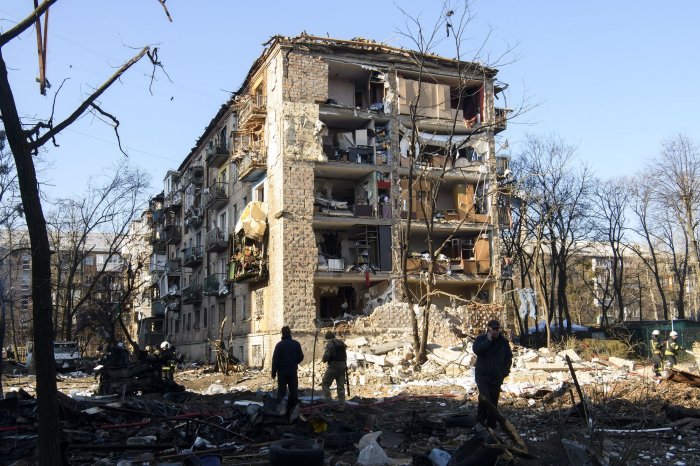1 of 4 | Oxfam's latest estimate shows that increasing food costs alone will thrust serious poverty upon 65 million more people worldwide -- and a total of 263 million more people would fall into "extreme" levels of poverty. File Photo by Wael Hamzeh/EPA-EFE
April 12 (UPI) -- COVID-19 and rising energy and food prices triggered by Russia's invasion of Ukraine could force 860 million people into extreme poverty by 2022's end, a report by British charity Oxfam said Tuesday.
The report, titled "First Crisis, Then Catastrophe," says that the combined crises could increase the number of people living in extreme poverty -- those living on less than $1.90 per day -- by more than a quarter of a billion.
The organization released the report ahead of next week's World Bank and International Monetary Fund Spring Meetings in Washington, D.C.
An original projection from the World Bank showed that 198 million more people worldwide would struggle through crippling poverty levels this year as a result of the ongoing pandemic and worsening global inequality.
However, Oxfam's latest estimate shows that increasing food costs alone will thrust serious poverty upon 65 million more people worldwide -- and a total of 263 million more people would fall into "extreme" levels of poverty. The report notes that figure equals the combined populations of Britain, France, Spain and Germany.
![]()
A Ukrainian man walks past destroyed buildings in Borodianka, Ukraine, on April 5. The fighting has caused food and energy costs worldwide to rise, and the impact will be severe for millions of people facing poverty, Oxfam said Tuesday. Photo by Vladyslav Musienko/UPI
World Bank estimates show that 3.3 billion people -- nearly half the global population -- are currently living below the poverty line of $5.50 per day.
Last week, the United Nations' Food and Agriculture Organization said that food prices worldwide have risen to their highest levels in the near 30 years that the agency has been tracking them.
"Without immediate radical action, we could be witnessing the most profound collapse of humanity into extreme poverty and suffering in memory," Oxfam International Executive Director Gabriela Bucher said in a statement accompanying the report on Tuesday.
"This terrifying prospect is made more sickening by the fact that trillions of dollars have been captured by a tiny group of powerful men who have no interest in interrupting this trajectory."
The report noted that billionaire wealth has seen its largest-ever boost as major corporations use inflation to their advantage. Rising energy prices and margins have increased oil company profits, and agricultural companies are expected to rake in higher profits as food costs soar, it adds.
Oxfam said that urgent action is needed to combat the extreme inequality crisis, including canceling all debt payments for developing countries that are in need of the most urgent help. Such a move would free up over $30 billion in vital funds this year for 33 countries dealing with debt distress, the report says.
The organization recommended, among other things, introducing one-off and permanent wealth taxes to fund COVID-19 pandemic recovery -- which has already been done in Argentina, where the "millionaire's tax" has brought in around $2.4 billion toward bouncing back economically.
Among Oxfam's other recommendations are introducing excess profit taxes to capture the windfall profits of large corporations, boosting humanitarian aid and funding Ukrainian assistance and refugee-hosting costs.
Ukrainian service members stand beside a damaged building in a residential area after shelling in Kyiv, Ukraine, on March 18. Photo by Vladyslav Musiienko/UPI |
License Photo

















